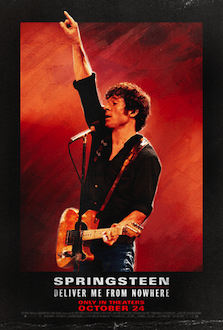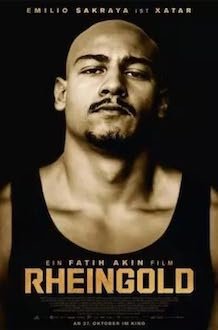Direction: Scott Cooper
Country: USA
Scott Cooper’s adaptation from the book Deliver Me from Nowhere: The Making of Bruce Springteen's Nebraska by Warren Zanes focuses on a very specific period in Springsteen's life, a depressive phase partly motivated by a complicated relationship with an abusive father and a wobbly, reticent romantic affair. Yet, it was a musically creative one, with the musician risking an unorthodox career move that ultimately paid off.
Jeremy Allen White’s much-anticipated turn as Springsteen raises expectations, but neither he nor Cooper ever quite find a rhythm to build upon. The biopic drifts along passively, leaning heavily on Springsteen’s music while failing to draw any real emotional charge from the material. Conventional in approach and stretched well beyond what its thin narrative can sustain, the film remains trapped in bland, repetitive formulas, never daring to push beyond familiar biopic beats.
Cooper’s pacing is leaden, and the film’s narrow focus further limits its scope, sinking into melancholic passages that rarely rise above banality. Enthusiasm is hard to muster, as the overall experience lacks urgency, momentum, and vitality. Despite the suitably retro-flavored cinematography by Cooper’s regular collaborator Masanobu Takayanagi, Springsteen: Deliver Me from Nowhere remains dramatically inert.












